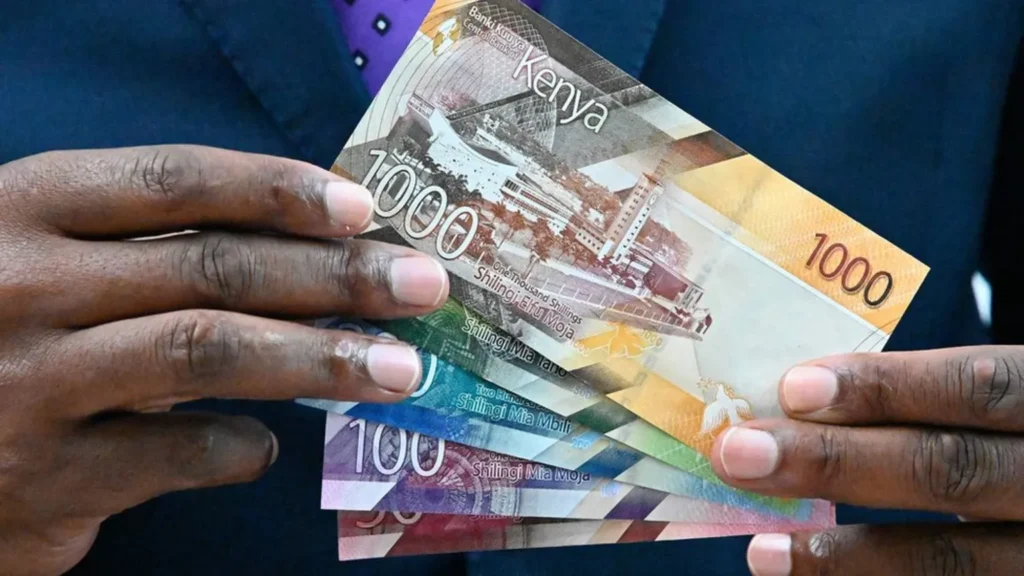
Kenyan Americans and Kenyans living in the U.S are increasingly at the heart of Kenya’s economic development, with their remittances becoming a key source of foreign exchange, economic stability, and social development. From everyday household support to large-scale investments in real estate and infrastructure, the financial contributions of the Kenyan diaspora—particularly those from the United States—have grown to be an essential part of Kenya’s financial health and national strategy.
The Central Bank of Kenya (CBK) and World Bank data show a consistent rise in diaspora remittances over the past decade, with 2023 marking a record-breaking year as Kenyans abroad sent home USD 4.19 billion. This represents a significant increase from 2022, and diaspora remittances now surpass tourism, tea, and horticulture as the leading source of foreign exchange inflows. This trend underscores the growing importance of Kenyan Americans, who comprise the largest portion of these contributions, accounting for over 60% of the total funds sent to Kenya annually.
Kenya’s reliance on remittances is not unique; the World Bank notes that remittances are a major component of economic stability for many developing countries. In Kenya’s case, remittances contribute roughly 3% to the national GDP, which fluctuates depending on global economic conditions and domestic needs. This figure highlights the resilience of the diaspora, especially in times of crisis. During the COVID-19 pandemic, remittances remained stable despite economic disruptions worldwide, indicating a strong and enduring connection between the Kenyan diaspora and their homeland.
CBK data indicates that December 2023 was a particularly strong month, with remittances hitting USD 372.6 million. This spike in inflows helped maintain foreign exchange reserves at USD 6.8 billion, securing three months of import cover and meeting international standards for economic stability. Such robust remittance flows offer a level of economic predictability, enabling Kenya to navigate global financial uncertainty with greater confidence. They also allow the government to pursue long-term development goals without immediate pressures from external debt.
Beyond their economic impact, remittances have a profound social influence on Kenyan society. A substantial portion of the funds sent home is used to meet essential needs—education, healthcare, and household expenses—directly affecting the quality of life for many Kenyans. According to CBK’s surveys, over 50% of remittances cover educational costs, medical bills, and daily living expenses. These inflows are particularly vital for rural areas, where access to formal banking is limited, and remittances often serve as families’ primary income source.
Additionally, a growing segment of remittances is funneled into real estate, agriculture, and small business investments. Kenyan Americans increasingly focus on purchasing land, building homes, and investing in farming projects, thereby contributing to local economies and job creation. This trend supports the government’s push for real estate development and urban expansion, aligning with Kenya’s Vision 2030 goals of transforming the country into a middle-income economy with high living standards.
One of the most significant shifts in recent years is the rise of digital and mobile payment platforms, which have revolutionized how remittances are sent and received. Mobile money services like M-Pesa have reduced transaction costs and made it easier for Kenyan Americans to send money directly to their families without relying on traditional banks, which often charge high fees. The increased accessibility has expanded financial inclusion, allowing rural families to participate in the formal economy and access services like insurance and credit.
This digital transformation has also made it possible for remittances to play a more strategic role in Kenya’s economy. The ease of sending money has encouraged the diaspora to support local start-ups, fund innovative projects, and invest in technology-driven enterprises. Kenyan Americans are now seen not only as senders of money but as drivers of innovation, bringing in new ideas and expertise from the tech hubs of the U.S. to Kenya’s growing digital economy.
Recognizing the importance of diaspora remittances, the Kenyan government has introduced several initiatives to harness these funds more effectively. Programs are in place to facilitate investment in the real estate sector, encourage savings among the diaspora, and streamline remittance processes through tax incentives and bilateral agreements with host countries. The goal is to increase remittances to Ksh 1 trillion (approximately USD 7 billion) by 2027, as highlighted by recent CBK targets.
Furthermore, Kenya’s engagement with the diaspora extends to encouraging dual citizenship and offering avenues for political participation, aiming to deepen ties between Kenyan Americans and their homeland. Establishing the Kenya Diaspora Investment Fund is one example of how the government seeks to turn remittances into a sustainable development tool, allowing the diaspora to invest directly in government-backed projects.
In a global economy marked by uncertainty, the role of Kenyan Americans in stabilizing Kenya’s economy through remittances cannot be overstated. These contributions have provided a buffer during economic downturns, supported families through difficult times, and offered Kenya a steady flow of foreign exchange to maintain economic stability. This lifeline has helped Kenya navigate global financial storms, from the 2008 recession to the COVID-19 pandemic, with a level of resilience that underscores the critical importance of the diaspora.
The future of Kenyan American remittances is promising. As the Kenyan diaspora in the U.S. grows and diversifies, the potential for even greater contributions remains high. Whether through education, healthcare, or entrepreneurial ventures, the Kenyan American community continues to build bridges between the two nations, ensuring that their financial and cultural ties endure for generations to come.
Kenyan Americans exemplify how diasporas can be a force for good, providing financial support and contributing to their home country’s economic and social fabric. Our story is one of dedication, resilience, and an unbreakable bond with our roots—a story that continues to shape Kenya’s future.
